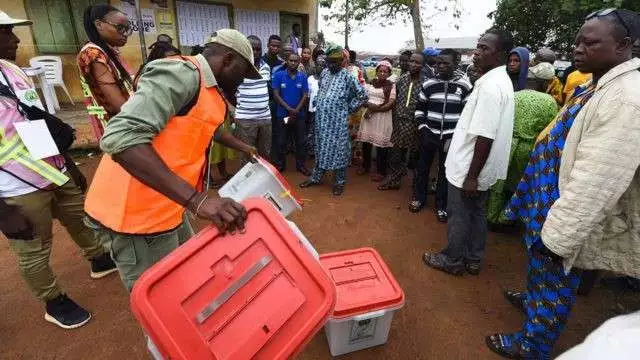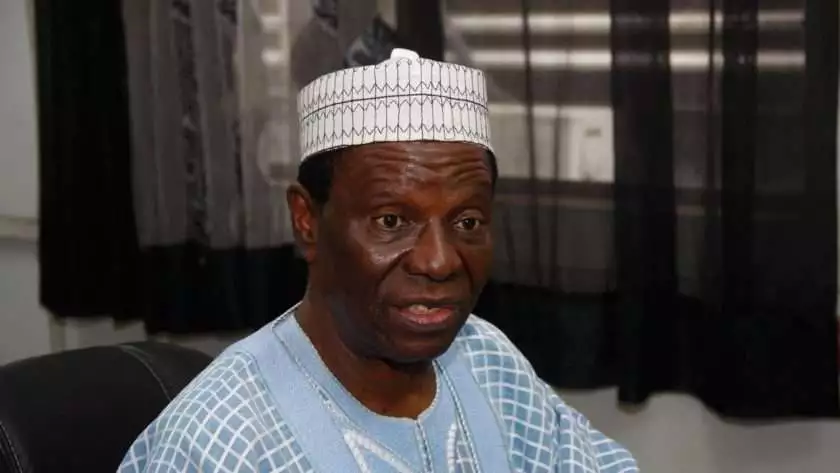Only two weeks ago, I attended an exciting workshop on the inexplicable herder/farmer conflict in Nigeria and thoroughly enjoyed one of the workshop papers which traced the origin of communal conflicts in parts of Nigeria. An interesting aspect of the paper was how it reviewed the famous Battle of Osogbo of 1840 where at that time; the Yorubas successfully halted the Fulani incursion into what became known as the South West of Nigeria. It was a battle which reportedly began with the quest of the empire-building Fulanis to annex outlying communities. After capturing Ilorin at about 1836, they sought to sack the old Oyo Empire with an initial 1840 attack on Osogbo, a Yoruba town. The fierce battle ended as the turning point in the Fulani-Yoruba wars. What the Osogbo people did was to secure the assistance of Ibadan infantry warriors who at that point had acquired European rifles that were superior to the weapons available to the Fulani cavalrymen.
Last Thursday, an enactment of that fierce battle took place again in the same Osogbo which is no longer a small city but the Capital of Osun state of Nigeria. The bone of contention of the contest as it was in 1840 was the quest to capture political power. But because democracy has become the preferred mode of government world-wide, it was expected that the contest which was staged to determine the next governor of the state would be a game based on democratic values and not mere military prowess. At the end of the day, there was no substantial difference between the 1840 and 2018 battles of Osogbo as the eventual winners of the latter also secured the assistance of higher forces to overwhelm the losers. The battle was two-fold: first, state-wide elections held on Saturday September 22, 2018 and second, a rerun election held some five days later in some 7 units not enough to surpass either the landmass or voting population of only one of the 30 local government areas of the state. As small as this second battle was, it by far better deserves the title: the battle of Osogbo 2018.
The warfare began in the form of political brickbats between the two main contestants, the ruling All Progressives Congress, APC and the opposition Peoples Democratic Party, PDP. The rerun was informed by the decision of Independent National Electoral Commission, INEC, to declare the first ballot as inconclusive because no clear winner emerged against the backdrop of the rather temperamental INEC guidelines. According to media reports, the eve of the rerun was marked by varying alarms by the contestants of certain undemocratic signals. On the PDP side, was Nigerian ace musician, David Adeleke, also known as Davido, whose uncle Ademola Adeleke was the governorship candidate of the party. Some 24hours to voting, Davido had raised an alarm via his twitter handle of alleged plans by the ruling All Progressives Congress (APC) to rig the rerun election. The latter in response through its national publicity secretary, Yekini Nabena. accused the PDP of planning to rig the rerun by cloning Permanent Voters Cards (PVCs). These claims aptly prepared the ground for the fireworks of Thursday September 27, 2018.

The day turned out to be a special election process characterized by excessive voter harassment and intimidation. In several places especially at Disu, in Orolu local government area, the people complained to the media that they were manhandled by political thugs escorted by security agencies. Adeleke, the PDP candidate had to use the media to reach the rest of the world that what was happening was a coup d’état and not an election. Media reports confirmed that election observers and journalists were not spared either. There was palpable fear and apprehension in places such as Ifon, due to what was described as the high-handed conduct of the security agents who seemed bent to sway the vote the way of certain partisan interests
A broadcast journalist with Galaxy TV, Seun Falomo who was duly accredited to cover the rerun was reportedly tear-gassed at close range and beaten by the officers for snapping photos of them while dispersing protesters around the electoral base. Other journalists among them, Kemi Busari of PREMIUM TIMES were similarly arrested for taking pictures at polling unit one, ward eight in Orolu Local Government Area. Some field observers deployed to observe the process and ensure its credibility, especially in Orolu and Osogbo LGAs, were also allegedly intimidated, threatened and in some cases arrested by security forces. At Ajegunle Roundabout, leading to Polling Unit 003 Ward 9 Gbogbo Primary School in Orolu LGA, security personnel reportedly mounted barricades to obstruct observers and deny them access to the polling unit.
This seems to explain the statement by a major election monitoring group, Centre for Democracy and Development (CDD), which faulted the development noting that the number of incidents recorded during the poll undermined the sanctity of the vote and the overall credibility of the electoral process. In the words of the CDD “we hold strongly the view that the re-run poll of Thursday, September 27, 2018, does not meet up with the minimum standards for free, fair and credible elections.” Unfortunately, the security architecture did not appear to be aware of most of the complaints making it appear that the CDD was partial. All that they knew as revealed Joshak Habila, the Deputy Inspector General of Police (operations) on Channels Television a day after the rerun was a group of 16 fake observers who belonged to one of the two major parties. But what the police didn’t see was corroborated by foreign observers. In their joint initial observation on the conduct of the rerun, the election observation teams of the United States (US), the European Union (EU) and United Kingdom, observed reports of irregularities, harassment and interference by inappropriate persons in the elections.
If so, could anyone have validly won the election? INEC, which interestingly expressed concerns over the negative reports, was able to arrive at a conclusion that the candidate of the ruling party who was second during the first inconclusive ballot eventually emerged victorious. This day newspaper got it right when it said: APC “subdued” PDP. Painfully, today’s losers won under similar circumstances in the past. Indeed, when an election is fought as a battle, rather than as a game which it ought to be, what appears to matter is not how it was fought but how it ended because all is fair in a war. That was how the first battle of Osogbo ended in 1840. The 2018 battle has also just similarly ended succinctly reminding the world that Nigeria’s electoral process remains in the 19th Century.
Discover more from The Source
Subscribe to get the latest posts sent to your email.








